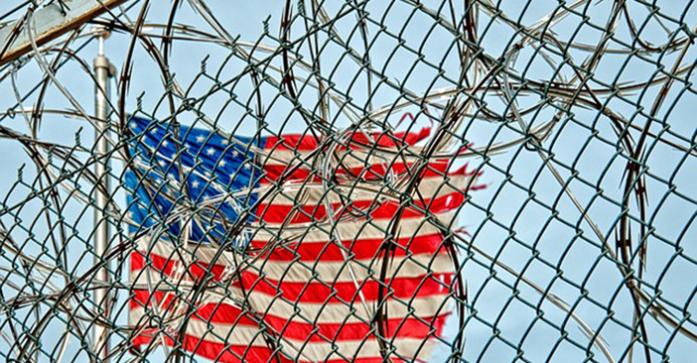Last week, the Justice Department announced that at the end of October, it will release 6,000 nonviolent drug offenders serving time in federal prisons. It is the largest one-time release of federal prisoners and helps further President Obama’s efforts to address prison overcrowding and the damage that years of the War on Drugs has wrought.
A third of the prisoners are foreign citizens who will be deported upon their release. The rest will be sent to halfway homes or confined to house arrest before being put on probationary supervised released.
To be clear, this decision essentially comes from the U.S. Sentencing Commission, which sets sentencing guidelines for federal crimes. Last year, the commission reduced the potential punishment for drug offenders and retroactively applied those guidelines for current prisoners, according to the Washington Post. It will have a much bigger effect than Obama’s initiative, which has so far only resulted in 89 nonviolent offenders being freed.
But even these 6,000 are just a small portion of the overall number of inmates that could potentially be released. The commission reported that 46,000 of the approximate 100,000 people currently serving time for drug offenses could be released early, which could have a massive effect. An estimated 70 percent of those charged with drug offenses in the future would benefit from the sentencing change, with an average sentence reduction of 11 months.
In the pushback against the War on Drugs, one would typically expect states to act before the federal government. The infamous mandatory minimum sentences enacted during a time when the nation was in a moral panic over crime and drugs has left a legacy: decades-long imprisonment of drug offenders, who are many times low-level dealers or users who are disproportionately young men of color.
The change in drug laws has, up to this point, come from individual states: Colorado and Washington legalizing marijuana and several others decriminalizing its use (meaning an offender would only get a ticket instead of jail time).
But this latest federal move makes it clear that this trend, at least in some states, has been reversed. Take Iowa, for instance. Mere possession of a controlled substance in the state comes with a serious-misdemeanor charge, punishable by up to a year in jail (marijuana possession is a regular misdemeanor, with a potential of six months in jail and a fine of $1,000).
For a crime that harms no one but the individual, such serious charges can negatively affect the rest of that person’s life. From job applications to finding housing, a prison record has staying power long beyond the period of incarceration.
The bipartisan support for prison reform seems like one of the few things in today’s political climate that both parties can agree on. It’s time for Iowa’s lawmakers to address these draconian laws that are holdouts from an era of moral panic, not objective evaluation. Treatment, not imprisonment, is the key to addressing this issue.



